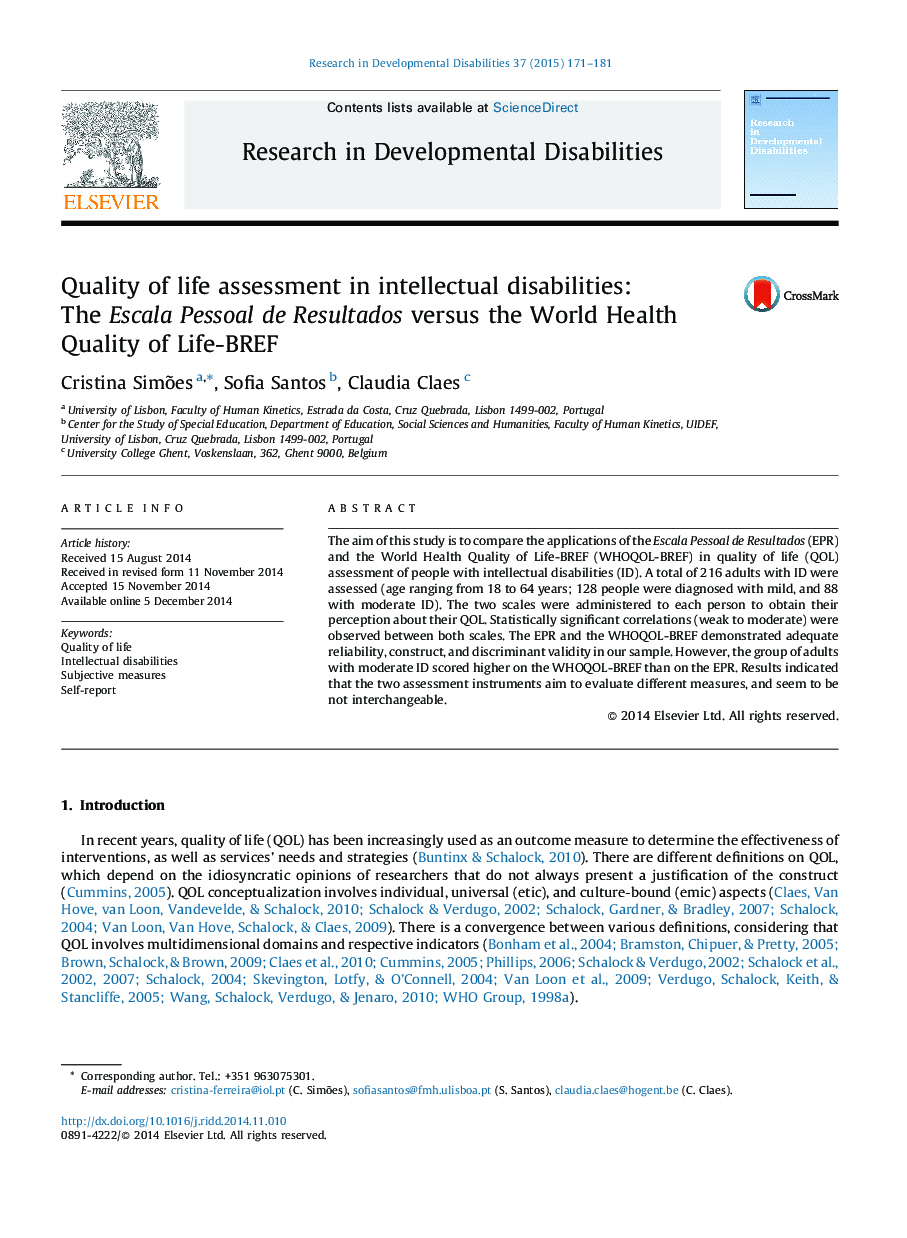| Article ID | Journal | Published Year | Pages | File Type |
|---|---|---|---|---|
| 371318 | Research in Developmental Disabilities | 2015 | 11 Pages |
•Significant correlations (weak to moderate) were found between both scales.•The relationship between objective/subjective indicators and subjective indicators are modest.•There were no age or gender differences in QOL assessed by the two scales.•The group of adults with limited support needs scored higher on the WHOQOL-BREF than on the EPR.•The two assessment instruments aim to evaluate different QOL measures.
The aim of this study is to compare the applications of the Escala Pessoal de Resultados (EPR) and the World Health Quality of Life-BREF (WHOQOL-BREF) in quality of life (QOL) assessment of people with intellectual disabilities (ID). A total of 216 adults with ID were assessed (age ranging from 18 to 64 years; 128 people were diagnosed with mild, and 88 with moderate ID). The two scales were administered to each person to obtain their perception about their QOL. Statistically significant correlations (weak to moderate) were observed between both scales. The EPR and the WHOQOL-BREF demonstrated adequate reliability, construct, and discriminant validity in our sample. However, the group of adults with moderate ID scored higher on the WHOQOL-BREF than on the EPR. Results indicated that the two assessment instruments aim to evaluate different measures, and seem to be not interchangeable.
